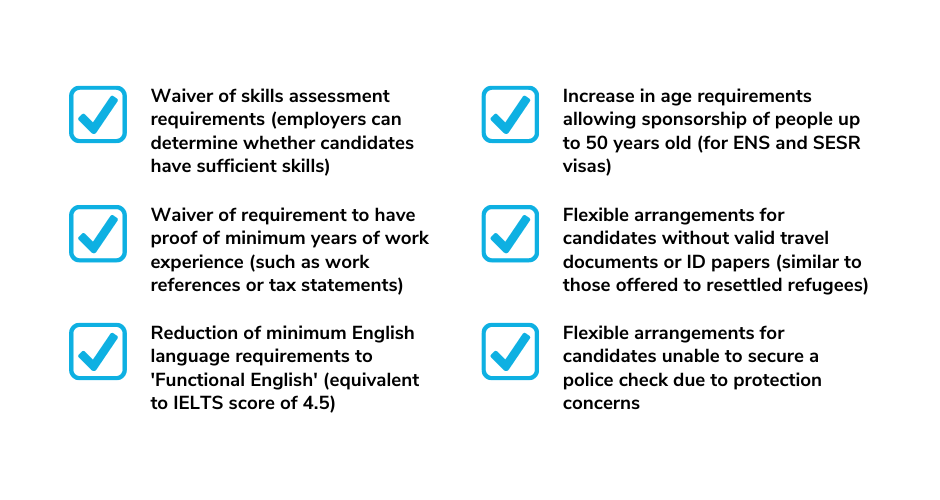The Australian Skilled Refugee Labour Agreement Pilot
In July 2021, the Australian Government launched the Skilled Refugee Labour Agreement Pilot program, designed in collaboration with Talent Beyond Boundaries (TBB).
The pilot removes many of the barriers that refugees and other forcibly displaced people face when trying to access employer-sponsored skilled migration pathways. It makes it easier for employers in Australia to hire from this often overlooked talent pool of skilled professionals and tradespeople who have been displaced from their homes and are living in Lebanon, Jordan and other refugee hosting countries.
Over the next two years, the pilot will give 100 displaced people the opportunity to move to Australia, with their families, for work. (Edit: The pilot has since been increased to 200 primary places).
This is an historic achievement many years in the making, and TBB acknowledges the work of partners, donors, advocates and policy-makers in bringing it to life.
Most importantly, we recognise and thank those involved in our pre-pilot phase: a small group of talented refugee candidates and visionary Australian employers who have demonstrated that a program like this can succeed.
How does the pilot work?
Employers endorsed by TBB can access the pilot program by entering into a company-specific labour agreement with the Department of Home Affairs. The labour agreement allows employers to sponsor a TBB-endorsed refugee or displaced person for one of the following visas:
and access a number of concessions, including:
The Department of Home Affairs has approved 683 occupations that can be sponsored under the labour agreement.
With TBB's support, employers themselves are able to assess a refugee candidate's skills and experience to determine whether they are suitable to work in Australia under this pilot.
How can employers participate in the pilot?
To participate in this pilot, an employer in Australia must first be endorsed by TBB. To begin the process, employers should register their interest at talentbeyondboundaries.org
For more information, employers can contact TBB’s Australia & New Zealand Co-Directors , Louna Ghawi and Jemma Bailey
How can displaced job seekers participate in the pilot?
To participate in this pilot, a refugee or displaced person (see eligibility criteria) must be endorsed by TBB and sponsored by an Australian employer.
To be considered for employment and sponsorship, job seekers should register on TBB’s Talent Catalog, providing detailed information about their skills, education and work history.
FAQs
Who can employers sponsor?
Employers can sponsor refugees or displaced people who have been endorsed by TBB. We will ask employers interested in hiring as part of this pilot to identify the role/s they need to fill and provide a job description. We will identify potential candidates from our Talent Catalog and, working with our local partner Refugee Talent, we will support employers through the remote recruitment process.
How does the remote recruitment process work?
Once a role has been identified, we will present a shortlist of candidates to an employer for review. The employer then has the option to take any/all of these candidates through their normal recruitment process (interviews, skills tests, etc). With our local partner Refugee Talent, we can organise remote interviews in accordance with any specific format required. When the recruitment process is complete, employers can extend an official job offer to their preferred candidate/s.
What happens after an employer makes a job offer and it is accepted by a candidate?
Once a job offer is made and accepted, employers will need to apply to enter into a labour agreement with the Department of Home Affairs with TBB’s endorsement and lodge an application for the relevant visa for the candidate. We recommend that employers use a registered migration agent or immigration lawyer to assist with this process, and we are happy to refer employers to a suitable practitioner.
How long will it take for the visa to be granted?
Applications lodged under the Skilled Refugee Labour Agreement Pilot will receive priority processing. On average, we expect the immigration process to take around three months. That said, visa processing times vary widely from case to case, and COVID-19 potentially exacerbates this uncertainty. Where borders are are closed, employers will also need to apply to the Australian Border Force for a travel exemption for their candidate. TBB can assist with this.
What happens after the visa and travel exemption is approved?
Together with Refugee Talent, we will work with employers to make arrangements for the relocation of successful candidate/s to Australia. This includes connecting candidates and their families to local support services upon arrival.
What happens once a successful candidate arrives in Australia?
Successful candidates usually begin work two weeks after arrival in country. TBB and Refugee Talent work with the employer and local support services to ensure candidates and their family members are welcomed into the community. We stay connected with the employer, candidate and their family for 12 months post relocation to help ensure a good settlement experience.
How much does it cost employers to hire through this pilot?
The cost to employers is in line with any international hire, and is comprised mostly of:
Visa application and associated charges;
Immigration legal fees (for assistance with the visa process); and
General relocation costs such as flights and temporary accommodation upon arrival.
TBB and Refugee Talent do not charge a fee for the recruitment and settlement coordination services that we provide.
Can successful refugee candidates bring their family with them to Australia?
Yes. The primary visa applicant is entitled to bring their spouse or de facto partner and any dependent children with them to Australia.
Why is this program needed?
There are 26 million refugees living displaced, and nearly half of them are working age. While displaced people have skills and talents that are needed by employers around the world, most refugees are living in countries where they are not allowed to work, and face significant barriers when trying to access skilled migration. This program will help remove the barriers that refugees face when seeking to migrate to Australia for work, creating a win-win for displaced people, employers and the wider Australian community.
This pilot is just the beginning. TBB intends to use the lessons from this pilot to create a sustainable migration pathway for displaced people to Australia. We look forward to working with employers and other partners to achieve this vision and we encourage other governments around the world to replicate this approach.
What does this mean for refugee resettlement in Australia under the humanitarian program?
The Skilled Refugee Labour Agreement Pilot is designed to be complementary and in addition to Australia’s commitments to refugee resettlement under the humanitarian program.
There will be no reduction in Australia’s humanitarian intake as a result of this pilot program, and applying for or obtaining a job through this pilot will not make people ineligible for humanitarian resettlement in future. TBB’s entire purpose and mission is to support more refugees to move out of displacement and rebuild their lives in dignity.
For more information, employers can contact TBB’s Australia & New Zealand Director, Sathya Gnanakaran.




